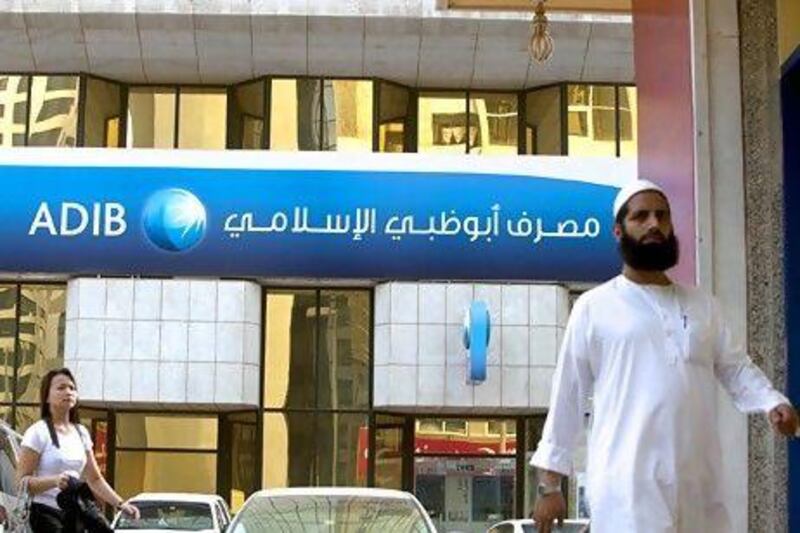Gulf banks are poised to raise billions of dirhams of fresh funds in an effort to comply with impending funding rules, with bond issuances and stock market listings on the cards.
A year-end deadline nearing for the first set of new Central Bank liquidity regulations in the UAE is forcing some lenders to tap capital markets.
But rather than reaching for local stock markets to call upon abundant liquidity available locally through rights issues, banks are heading overseas.
Banks including Abu Dhabi Islamic Bank and Doha Bank are said to be planning new capital raises.
Last week, Abu Dhabi Islamic Bank began a series of meetings in Asia, the Middle East and Europe on Thursday, as part of a proposed capital raise.
Doha Bank, the fifth-biggest bank in Qatar, was also said to be mulling a listing of global depositary receipts on the London Stock Exchange, Reuters reported.
Depositary receipts are bundles of a listed company's shares listed on a second exchange, allowing greater access to international capital.
Now that banks have reported third-quarter earnings, more bond issuances could be in the pipeline, said Debashis Dey, a partner at Clifford Chance, the law firm.
"We're coming up on the next window of issuance," he said. "There are still people out there looking to issue, it's just they're in the background doing what they're supposed to be doing."
Abu Dhabi Islamic Bank says it may seek to sell sukuk to investors which are designed to help the bank to meet its long-term funding requirements under Basel III.
The Central Bank announced new liquidity guidelines in July this year, intended to glide the UAE's financial sector towards compliance with the Basel III regulations.
The first deadline to comply with the Central Bank's regulation is in January, with a second set of rules scheduled for implementation in June.
For the most part, local banks appear much more well-capitalised than international rivals, though their ability to comply with Basel III is hindered by a lack of financial instruments available in other markets where sovereign debt curves are more developed.
But last month, analysts at Arqaam Capital warned that several UAE banks were undercapitalised under the new Central Bank liquidity regulations.
Until that point, most analysts' attention had been focused on a separate Central Bank regulatory drive to ensure that banks' exposure to governments or their commercial entities did not exceed total capital.
Meeting the two deadlines at once has proven particularly difficult for banks, said Michael Tomalin, the chief executive at National Bank of Abu Dhabi(NBAD).
The Central Bank may acknowledge that holding too much highly rated Abu Dhabi government-linked debt is better than having a flimsy balance sheet, he added.
"I don't think they'd want us to sell these bonds and replace them with lower-grade bonds to meet some concentration issues," he said.
Big lenders, including Emirates NBD andNBAD, say they are already compliant with the new liquidity rules, but only the capital's biggest bank has secured a deadline from the large exposure limits.
Others, including United Arab Bank, say that they are not currently in compliance but will meet the deadlines next year.





